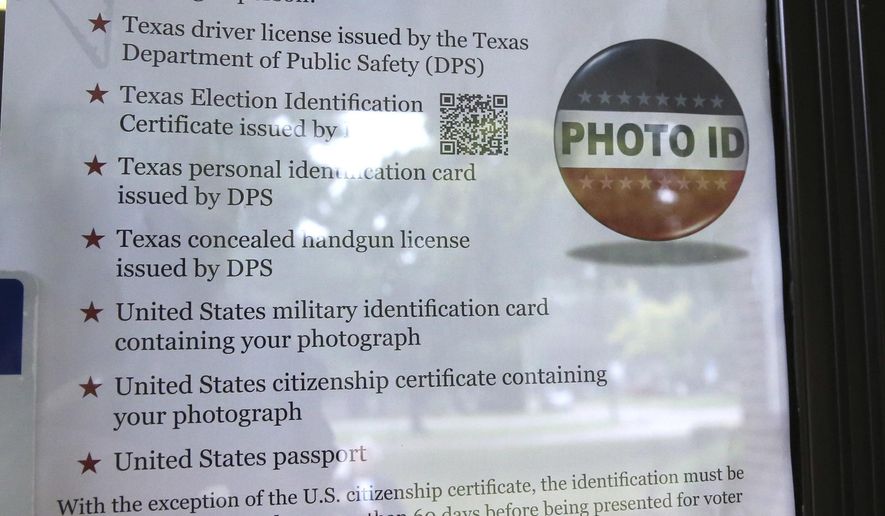A federal court judge in Texas struck down the state’s voter ID law on Wednesday, ruling it had a discriminatory intent and effect against Hispanic and black voters.
The decision is a blow to the Texas legislature and to President Trump’s Justice Department, which had asked the judge to halt efforts to overturn the state’s new voter ID law since it had expanded voter ID options from an earlier version, and would protect the integrity of elections in Texas.
But U.S. District Court Judge Nelva Gonzales Ramos of the Southern District of Texas said the state’s “SB 5” law did not meet requirements set forth from the 5th U.S. Circuit Court of Appeals after it had ruled in 2014 against an earlier voter ID law “SB 14.”
Judge Ramos, an appointee of President Obama who also had initially struck down SB 14, ruled Wednesday that the rewritten law did nothing to cure the previous issues of racial animus, and she issued an injunction that prevents the law from taking effect.
“SB 5 perpetuates the selection of types of ID most likely to be possessed by Anglo voters and, disproportionately, not possessed by Hispanics and African-Americans,” Judge Ramos wrote in the 27-page opinion for the court.
She said the new law didn’t “meaningfully expand the types of photo IDs that can qualify, even though the Court was clearly critical of Texas having the most restrictive list in the country.”
Texas Attorney General Ken Paxton quickly promised to appeal Wednesday’s ruling, calling it “outrageous.”
“Senate Bill 5 was passed by the people’s representatives and includes all the changes to the Texas voter ID law requested by the 5th Circuit,” Mr. Paxton said in a press release. “The 5th Circuit should reverse the entirety of the district court’s ruling.”
But Kristen Clarke, president of the Lawyers’ Committee for Civil Rights Under Law, cheered the ruling saying that Judge Ramos was holding Texas accountable for its “pernicious conduct.”
“African-American and Latino voters will now be able to vote in Texas without any of the suppressive effects of Texas’s ill-conceived and unnecessary photo ID law,” she said in a statement posted to Twitter.
Josh Blackman, a professor at South Texas College of Law, said the district judge’s ruling does not come as a surprise.
“The district court’s decision largely flows from a sharply divided decision from the en banc Fifth Circuit earlier this year, that Texas’s Voter ID law was enacted with a discriminatory purpose,” said Mr. Blackman.
He noted there are three vacancies on the 5th Circuit panel for Mr. Trump to fill.
“Those new appointments could very well make the difference when this case returns (as it ultimately will) to the 5th Circuit,” said Mr. Blackman.
• Alex Swoyer can be reached at aswoyer@washingtontimes.com.




Please read our comment policy before commenting.